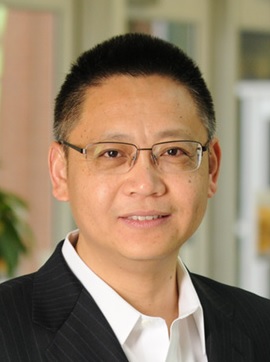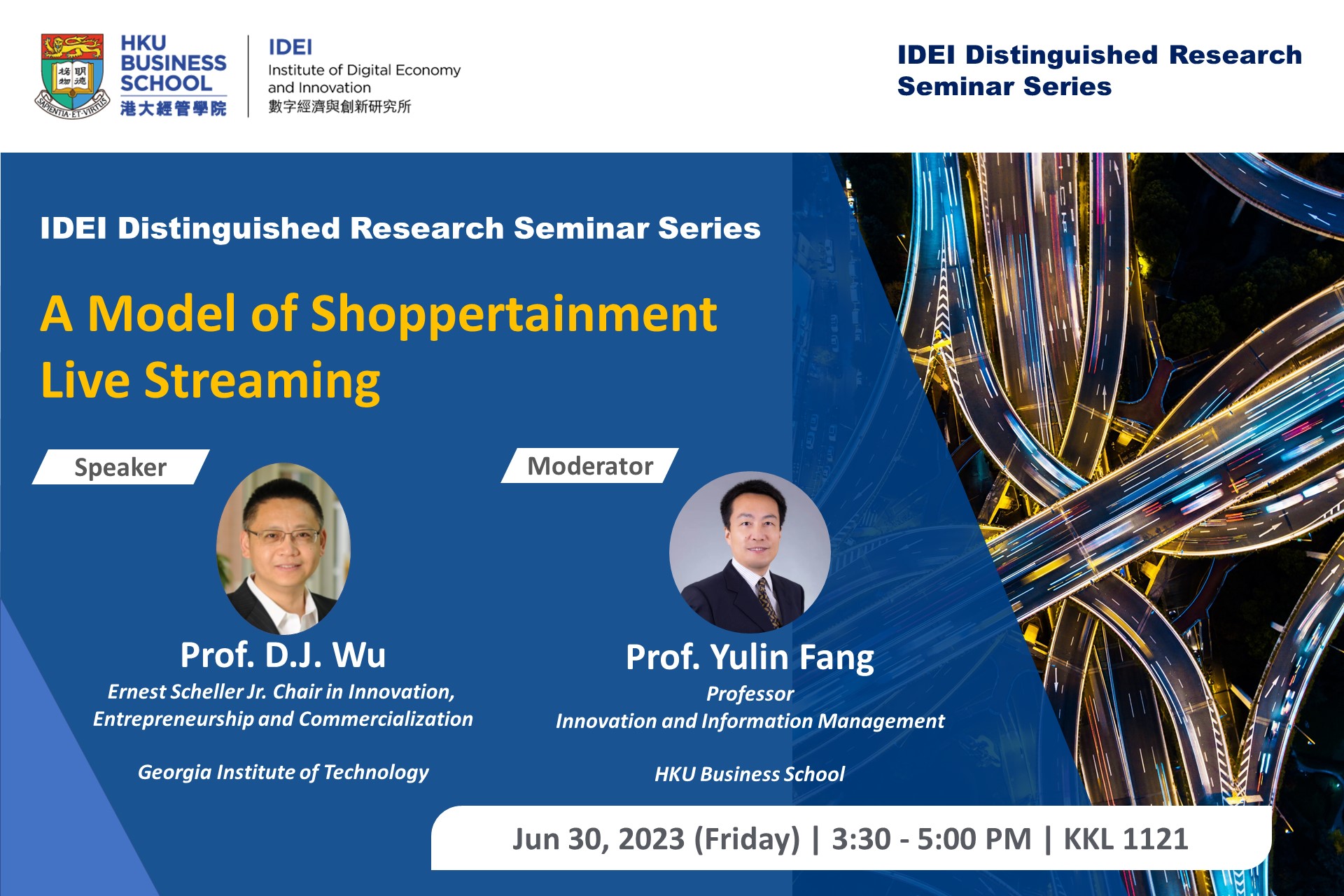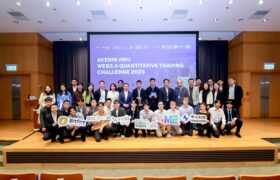
IDEI Distinguished Research Seminar Series
A Model of Shoppertainment Live Streaming
SPEAKER

Prof. D.J. Wu
This is a joint seminar organized by the Institute of Digital Economy & Innovation and HKU Business School’s Innovation & Information Management Area.
SPEAKER
Prof. D. J. Wu
D. J. Wu is the Ernest Scheller Jr. Chair in Innovation, Entrepreneurship and Commercialization, Professor of IT Management, and Area Coordinator in IT Management at the Scheller College of Business, Georgia Institute of Technology. He graduated from the Computer Science and Technology Department of Tsinghua University and received his Ph.D. from the Wharton School, University of Pennsylvania.
Prof. Wu’s current research interests include economics of digital innovation and transformation, digital business model innovations, platform ecosystems, enterprise information technology, and artificial intelligence and machine learning. Prof. Wu’s recent work has been published in academic journals, including Management Science, Information Systems Research, Manufacturing and Service Operations Management, and MIS Quarterly.
Prof. Wu serves as a Department Editor of Information Systems, Management Science. He also serves as a Co-Editor for the Management Science Special Issue on Human-Algorithm Connection, as well as a Co-Editor for the Information Systems Research Special Issue on Analytical Creativity. He has served as President of INFORMS Information Systems Society (2019-2021).
ABSTRACT
“Shoppertainment” live streaming is gaining increasing popularity, during which streamers provide entertainment and sell products. When operating shoppertainment sessions, the streamer balances the provision of product information, and entertainment (e.g., singing, dancing, and story-telling). We model a shoppertainment live streamer as a new form of sales platform and examine how a streamer’s allocation of entertainment bandwidth influences its commissions from total product sales by impacting manufacturers’ pricing decisions and consumers’ attending as well as buying decisions.
Our model generates several interesting findings. First, we show a higher entertainment bandwidth motivates more manufacturers to choose a demand-oriented, low-pricing strategy that attracts buyers, as opposed to a margin-oriented, high-pricing strategy that only attracts buyers who perceive a high chance of realizing a good fit. Second, with an increased entertainment bandwidth, the traffic size of consumers who attend a shoppertainment session initially increases, but may later decrease after the entertainment bandwidth becomes sufficiently high, suggesting an inverted-U-shape relationship. On the other hand, with increased entertainment bandwidth, the streamer’s expected profit per attending consumer first decreases, then increases, showing a U-shape relationship. Third, we show that a commission-maximizing streamer that faces bandwidth constraints should never allocate all bandwidth for providing product information. Instead, the streamer should always allocate a large bandwidth to provide entertainment, even with very limited capability to do so, and could benefit from allocating all bandwidth to entertainment if the streamer has ample capability. Finally, we demonstrate that the streamer’s quality threshold moderates the impact of entertainment bandwidth.
-
Institute of Digital Economy and InnovationThe University of Hong Kong,
Pokfulam Road, Hong Kong





